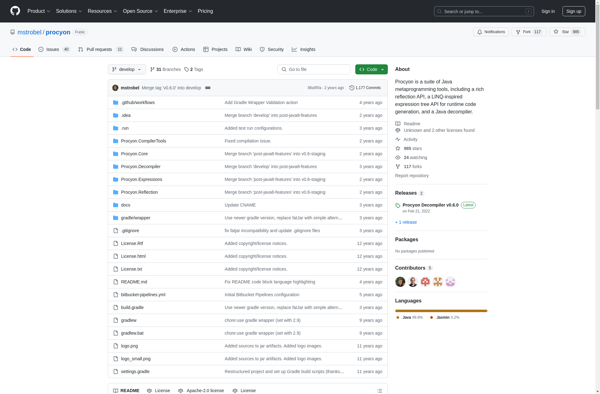Java Decompiler

Java Decompiler: Reverse Compile Java Bytecode
A Java decompiler is a program that takes in Java bytecode and converts it back into human-readable Java source code. It reverses the compilation process, allowing developers to inspect, debug, and modify programs even without access to the original source code.
What is Java Decompiler?
A Java decompiler is a software tool that analyzes compiled Java class files and converts the bytecode back into high-level Java source code that can be read and modified by developers. Unlike disassemblers which output low-level assembly instructions, decompilers aim to produce valid Java code, complete with comments and variable names for easier understanding.
Decompilers are extremely useful in cases where developers need to inspect or alter code for which they have lost or never had the original sources. Common use cases include analyzing third party libraries, recovering code from legacy systems, debugging complex applications, optimizing performance, and checking programs for security vulnerabilities or malware.
Popular Java decompilers include JD-GUI, CFR, Fernflower, Procyon, and Jadx. They use advanced algorithms to rebuild class structures, data types and variables names from bytecode metadata. The reconstructed code retains the structure and logic of the original, but may have formatting differences or lack very high-level code patterns. Obfuscated bytecode can pose challenges to generating readable output.
An effective Java decompiler simplifies and accelerates understanding complex compiled code. It empowers programmers to customize, enhance or secure critical software assets even without source access. Leading tools continue to improve Java language coverage and usability for broader developer productivity.
Java Decompiler Features
Features
- Decompiles Java bytecode back into Java source code
- Supports decompiling multiple Java versions - Java 1.0 to Java 8
- Provides syntax highlighting for decompiled source code
- Allows searching and renaming identifiers in decompiled code
- Supports decompiling entire JARs, class files and zip archives
- Generates call graphs and control flow graphs
- Integrates with popular IDEs like Eclipse, IntelliJ and NetBeans
Pricing
- Freemium
- One-time Purchase
- Subscription-Based
Pros
Cons
Official Links
Reviews & Ratings
Login to ReviewThe Best Java Decompiler Alternatives
Top Development and Reverse Engineering and other similar apps like Java Decompiler
Here are some alternatives to Java Decompiler:
Suggest an alternative ❐DotNet Resolver
CFR
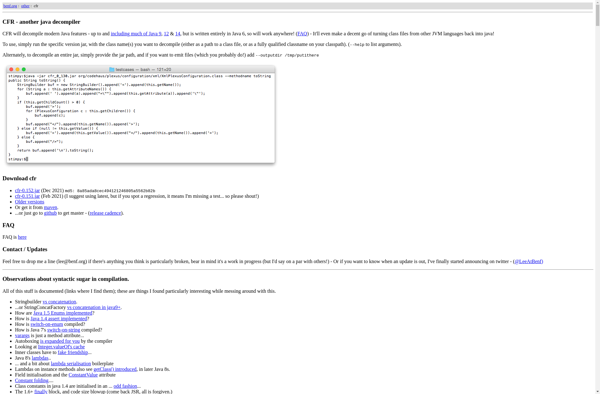
ShowMyCode

Bytecode Viewer
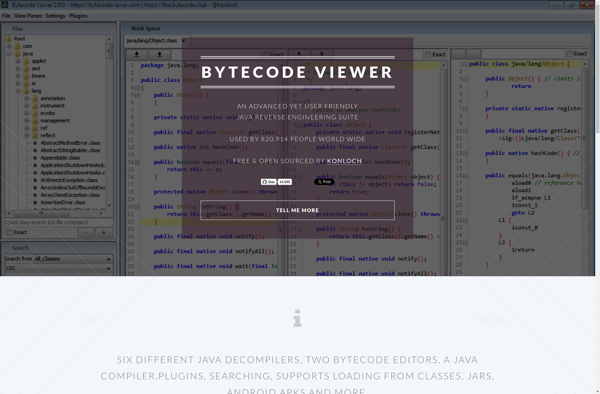
Decompiler.com
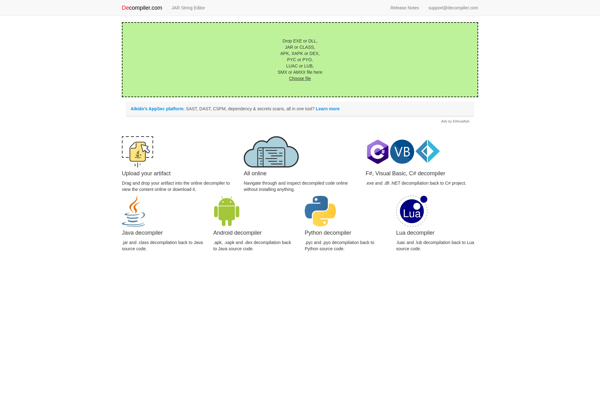
Luyten
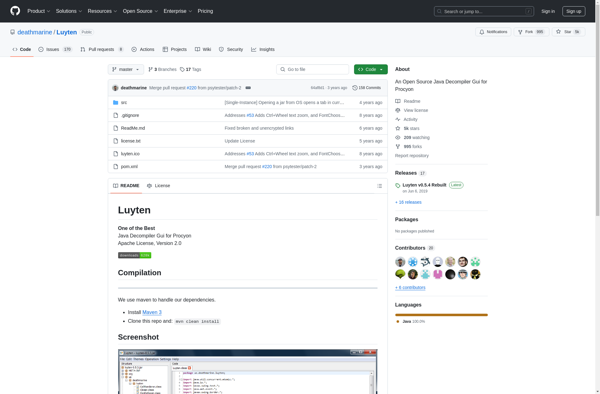
JavaDecompilers.com

Cavaj Java Decompiler
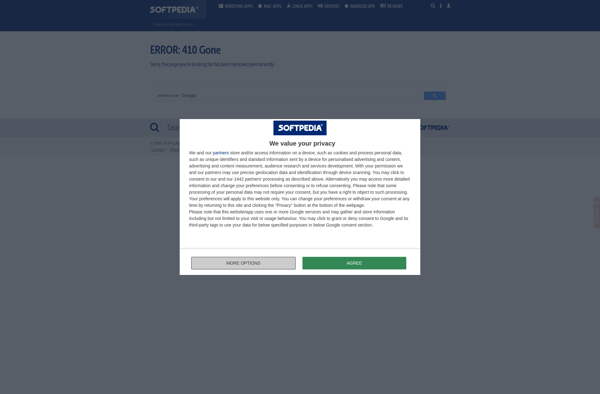
Procyon
